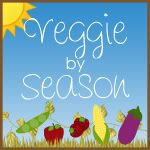


The history of England is so engaging and rich in information, it's hard for me to just list a few key points. I highly recommend looking into it further after reading this small piece.
One of the landmarks England is most famous for is Stonehenge, which is believed to have been erected around 2500-2000BC. Stonehenge is in southern Engald, where people were believed to have first lived as the climate was more hospitable during the end of the ice age. From the years of 2500 to 50 BC, the English lived a life of farming.
Julius Caesar invaded southern Britain in the year 54 BC. After Caesar left, control fell in the hands of the Britons until 43 AD when the Roman empire spread and gained control of England. After the Roman empire fell apart, the German group called the Anglo-Saxons gained control of England. After the Roman period ended, Smallpox and the plague broke out in England and the population saw a dramatic decrease.
The history of England from the middle ages until now is packed with so many notable wars, Kings, Queens, and documents.
-In the 1000's, Norman England produced the Domesday Book, which surveyed the land and population for tax purposes. It was also during this time that modern English was created.
-In the 1100's, King Henry II led crusades to take over parts of Scotland and Wales
-In 1215, King John (Richard, the Lion Hearted's sucessor) was forced to sign the Magna Carta, which limited the King's powers
John's son, Henry III became King at age 9, which led to many rebellions
-In 1349, the bubonic plague or "Black Death" killed around 1/3 of the English population.
-The Hundred Years' War was lost in August, 1453, and King Henry went into a mental breakdown. He was unable to control nobles, and civil war began - the War of the Roses.
-In the 1520's, Henry XIII wanted his marriage with Catherine of Aragon annuled, which led to a split with the Catholic church and the English reformation.
-Queen Elizabeth gained the throne in 1558, where she put to rest the problems with Henry XIII by creating the Church of England. Elizabeth died in 1603 with no heirs.
-In 1607, England constructed Jamestown in America.
-Civil War broke out in 1642, a reslut of tension between Charles I and Parliament. In 1660, monarchy was restored when King Charles II returned to England.
-In 1666, the capital was struck by The Great Fire, which lasted 5 days and destroyed 15,000 buildings.
-In 1800, the United Kingdom was formed.
-During the 18th and 19th centuries, the Industrial Revolution spread throughout England.
About the cuisine:
English food was popular during the middles ages, but later was found to be unsophisticated by neighboring countries - often using plain ingredients, beef, chicken, lamb, root vegetables, and dairy products. Due to a large influx of Indian and Chinese during the 1950's, English food has adopted many of their culinary influences.
I have chosen this week to make a few traditional English dishes, as well as one Indian influenced meal.





1 comment:
I can't wait to see what you come up with! While the food I had in England was so-so, the food I had in Wales and Ireland was fantastic! I've never had lamb so tender as I had over there. Looking forward to the updates!
Post a Comment